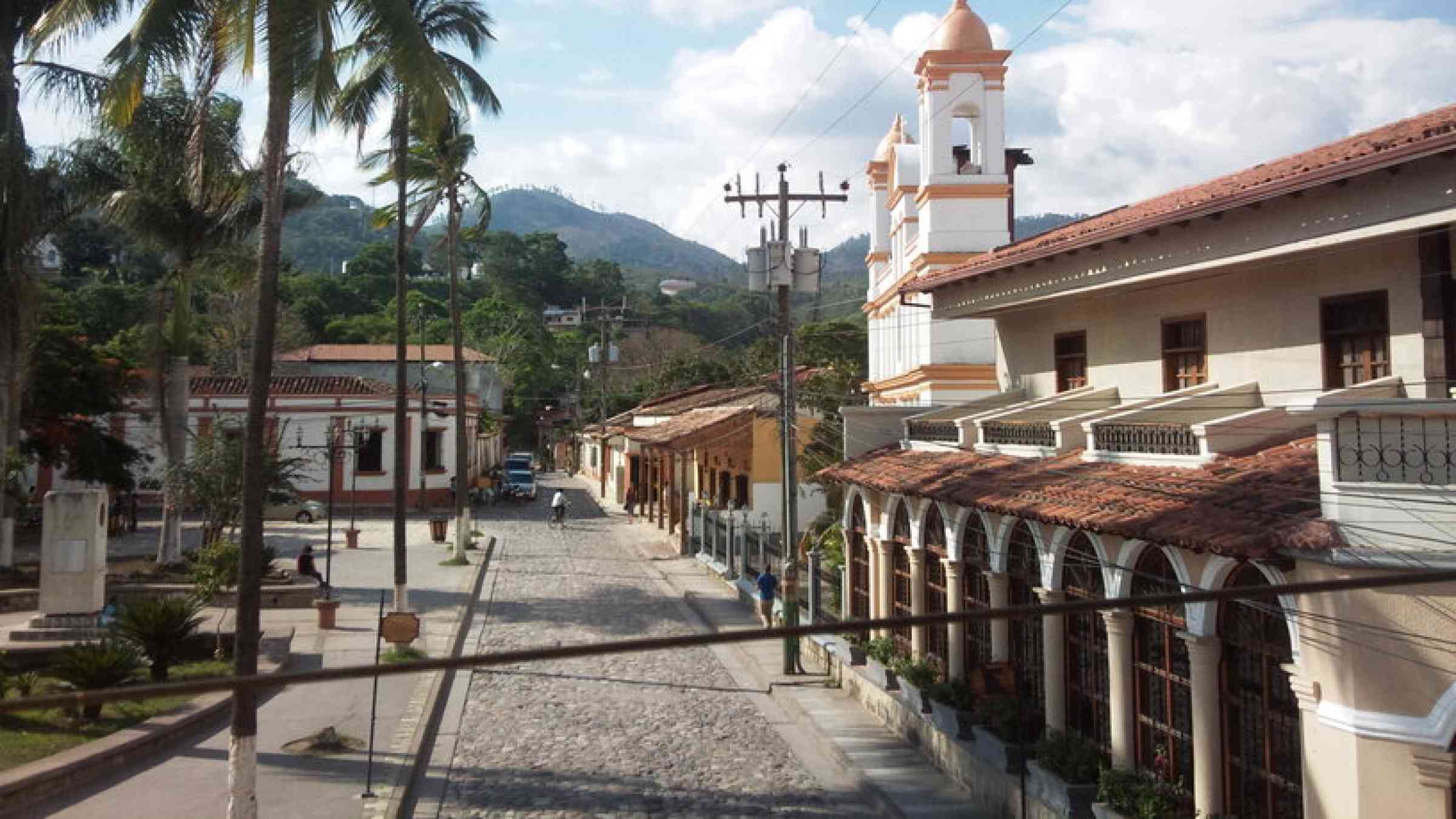Accelerating climate action will help Honduras achieve inclusive and resilient growth

Honduras has the potential to reduce poverty, lower inequality, and achieve low-carbon and climate-resilient development while accelerating climate adaptation, leveraging decarbonization policies, and transforming the agriculture, transport, and electricity sectors, according to a new World Bank report.
The World Bank Group’s Country Climate and Development Report (CCDR) for Honduras provides policy recommendations on how to safeguard the country´s natural capital and foster sustainable economic growth while protecting the poorest and most vulnerable populations —such as indigenous peoples, afro-descendants and women—disproportionately affected by the impacts of climate change.
“Honduras has the opportunity to advance resilient and sustainable development by implementing reforms to reduce vulnerabilities, protect the population as well as natural assets while generating jobs and reducing carbon emissions,” said Kinnon Scott, World Bank Resident Representative in Honduras. “A people-focused approach will be critical to promote more inclusive growth as it can help empower communities, particularly Indigenous People and Afro-Hondurans, to participate in resilience planning, lead climate action, and improve their livelihoods.”
Climate change poses a risk to Honduras’s sustainable development and threatens to intensify the country’s vulnerabilities. Without further action, climate-induced natural hazards, such as excess rain and tropical cyclones, compounded with earthquakes, could cause losses of around 5.4 percent of the annual Gross Domestic Product (GDP) and increase public debt by 6.2 percentage points by 2050. In addition to putting food, water security, and human health at risk, the impact of climate change will likely exacerbate challenges such as poverty and inequality and compound existing issues such as migration, internal displacement, land conflicts, and insecurity. For example, the impacts of natural disasters could force up to 56,000 people to move from rural to urban areas within Honduras.
The Honduras CCDR emphasizes the need for a forward-looking strategy that prioritizes adaptation investments and swift response to natural hazards. The report recommends measures to boost the implementation of these strategies and investments and provides analytical evidence to evaluate additional climate actions.
“The private sector has an indispensable role to play in Honduras’ transition to a resilient, inclusive, and low-carbon future,” said Sanaa Abouzaid, Regional Manager of the International Finance Corporation (IFC)—the private sector arm of the World Bank Group—for Central America. “In light of the government’s fiscal constraints, strengthening the regulatory and business environment is key to leverage private sector investment and support the country’s climate change agenda.”
The report includes a set of development and policy recommendations to improve adaptation to climate change and avoid high economic, environmental, and social costs:
- Enhancing capacity and building a robust institutional framework to implement and monitor climate action.
- Enacting a proactive macro-fiscal policy that prioritizes disaster risk management and adaptation investment to quickly finance additional expenditures for reconstruction, relief, and transfers to vulnerable populations affected by natural hazards.
- Protecting the poorest and most vulnerable. A poverty alleviation and social inclusion strategy that strengthens resilience through land tenure security, diversification of income opportunities for urban and marginalized populations, locally led investments in lagging areas, and progressive policies targeting vulnerable households.
- Improving the productivity and resilience of the agriculture sector by implementing climate-smart agriculture technology, providing subsidies to support farmers and specific businesses, investing in research, skills, and information systems, enhancing water management and efficiency, and strengthening actions to restore, sustainably manage, and protect forest ecosystems.
- Promoting low-carbon and climate-resilient transport systems. Increasing the resilience of rural roads and incorporating nature-based solutions to protect road infrastructure can help improve access to agriculture products markets and human capital.
- Sustainability of the electricity sector. Improving the sector’s sustainability will incentivize more investment in renewable sources, such as dam-based hydropower, with the potential to support water storage, irrigation, and protection against flooding. Energy efficiency measures will be key to reducing emissions.